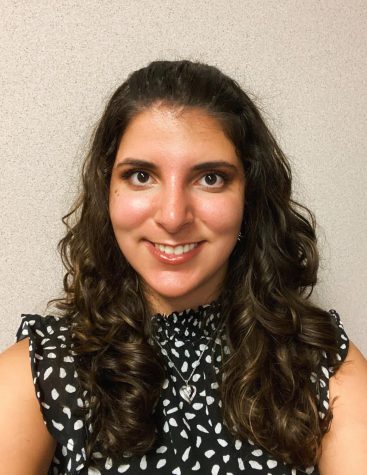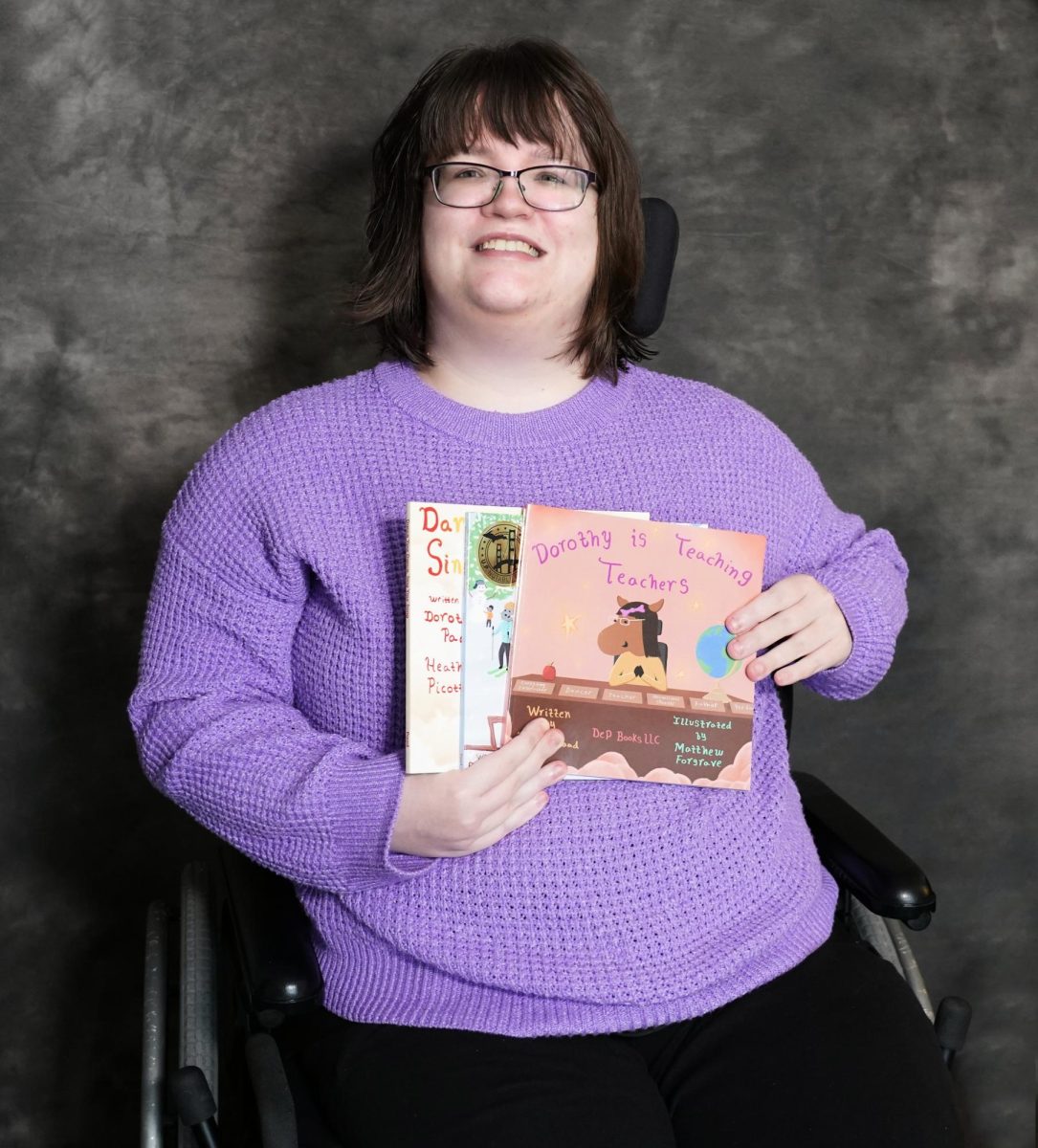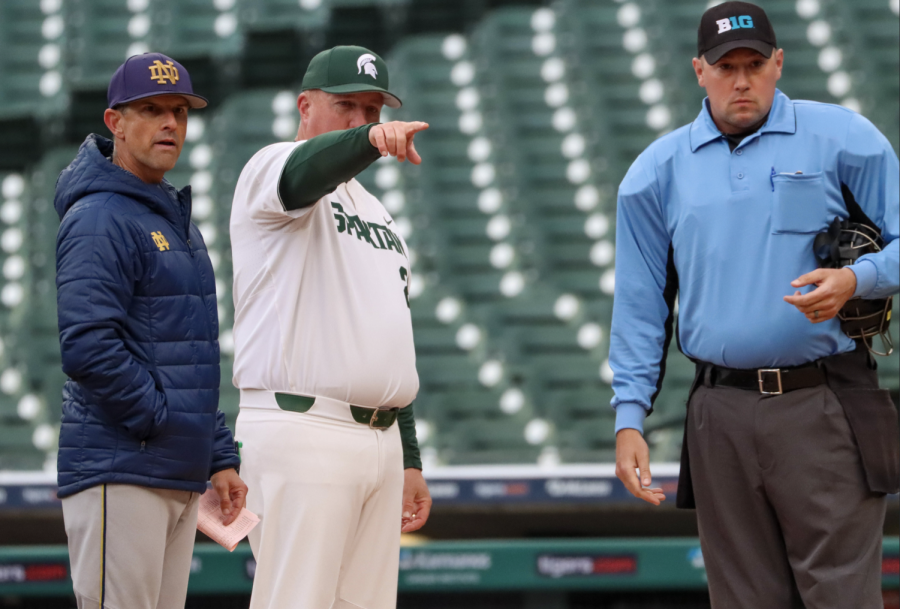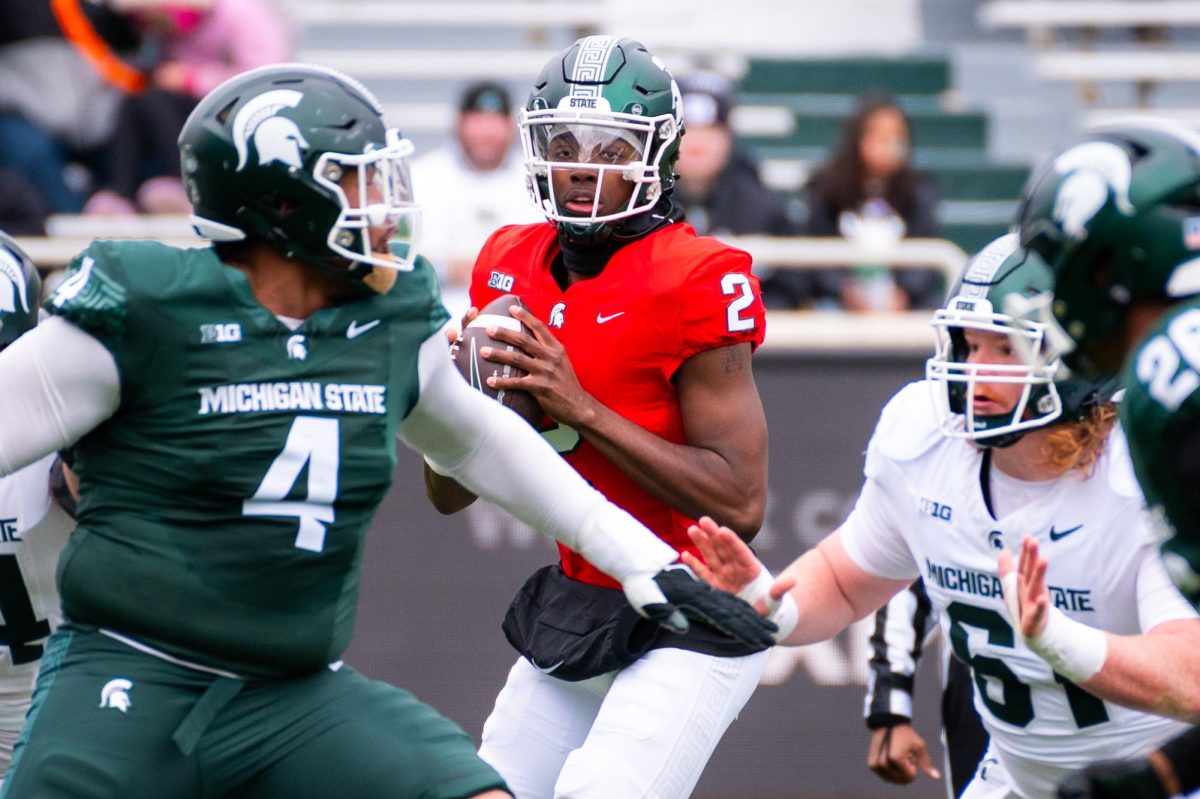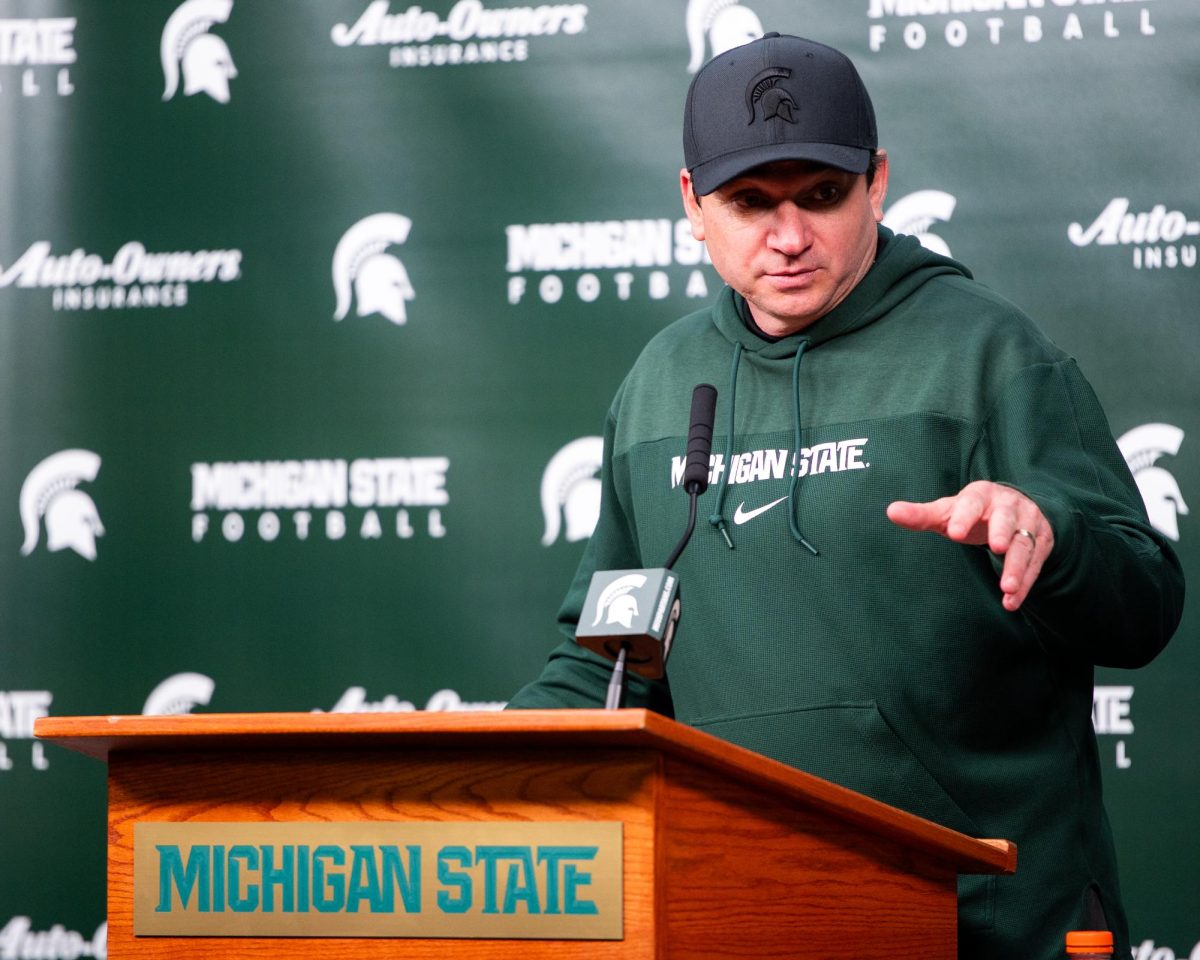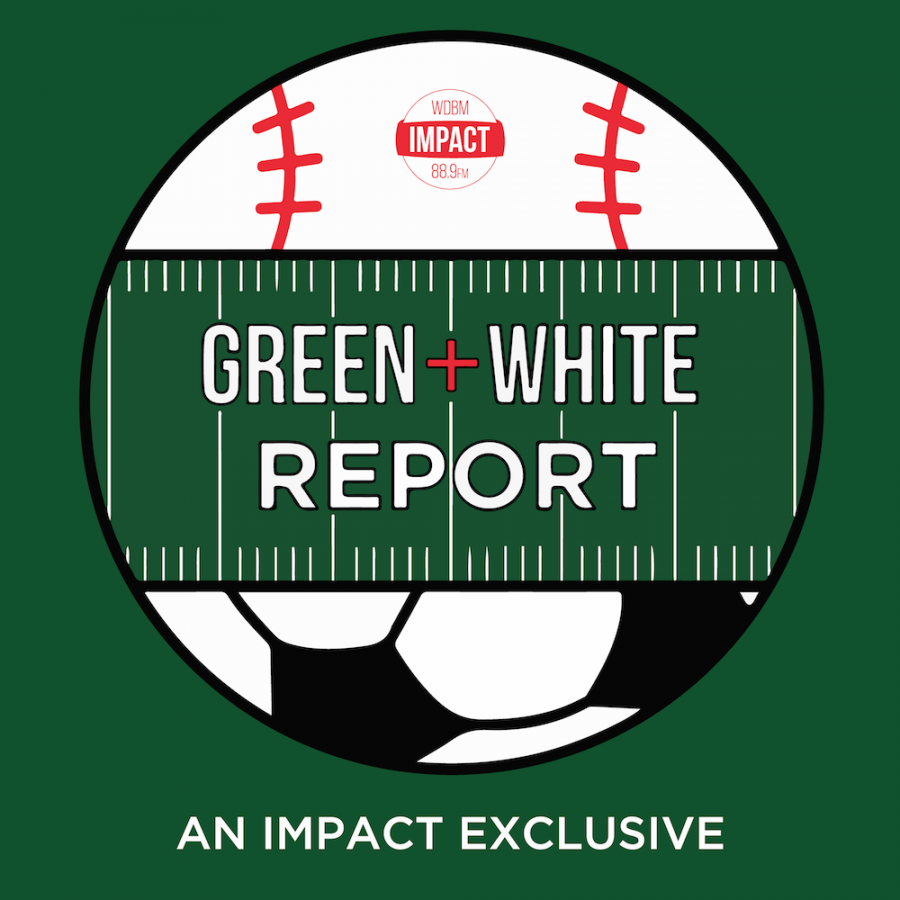Exposure – 4/26/2020 – TRANSCRIPT for Michigan College Access Network
April 28, 2020
Interview Transcript
Connie Rahbany: Hello and welcome to Exposure. I’m your host, Connie Rahbany, and I’m excited to be interviewing with Ryan Fewins-Bliss from Michigan College Access Network. Thank you for joining me.
Ryan Fewins-Bliss: Happy to be here. Thanks for inviting me.
Connie Rahbany: Yeah. So could I have you introduce yourself and tell me a little bit about you?
Ryan Fewins-Bliss: Yeah, I’m Ryan Fewins-Bliss. I’m the executive director of the Michigan College Access Network. We go by MCAN. Uh, I have worked at the organization for seven years and served the last year as the executive director. We’re an organization trying to increase the postsecondary attainment rate in Michigan to 60% by 2030. So that’s how we spend each and every day.
Connie Rahbany: Well, that sounds awesome. What can you tell me about the network? What is it?
Ryan Fewins-Bliss: Uh, it is a intermediary organization and nonprofit. So in, by intermediary, I mean, we don’t serve direct service to clients. So while we are looking to increase the number of students who go to college and are successful in college and complete college, we actually rarely talk to a student. We’re always working with the adults who work with students and the organizations and the schools and the institutions that work with students. Uh, because what we’ve found is that the problem in education is rarely the students. It’s usually the adults in the systems that cause problems for them to be able to be successful. So if we can fix those systems, the students will do what they need to do, learn and be successful and be economically independent once they leave school.
Connie Rahbany: So is that the goal of MCAN or what are you doing to achieve that?
Ryan Fewins-Bliss: So we’re trying to increase readiness and access, participation and completion in all forms of college. So that includes post-secondary certificate programs, associate’s degrees, bachelor’s degrees and beyond. So that’s really the mission is to increase those things particularly for three groups in Michigan, low income students, first generation college students, that’s those whose parents didn’t go to college, uh, and students of color. so we can increase the overall postsecondary attainment rate, the number of people in Michigan who have a certificate or a degree by hyper-focusing on those priority populations who have long been shut out of the system by some of those barriers I was mentioning.
Connie Rahbany: So how are you going about and doing that and also making sure that you are reaching out to those groups?
Ryan Fewins-Bliss: So we’ve got a variety of strategies that we use. We have a high school based strategy. We have a post-secondary, a college based strategy. We have a community based strategy, and then we have a policy based strategy. So a couple of examples of each, in the community based strategy, we’ve built local networks. So we’re MCAN Michigan College Access Network. We’ve built about 25 local college access networks or LCANs across the state. We’re trying to increase the postsecondary attainment rate in their local community using some of those same strategies that we are at the statewide level. Uh, we do a lot of grant funding to local organizations, to YMCAs, to community foundations, to high schools, to colleges and universities to help them change systems and structures to be able to help students and families better access and be successful in college. On the high school front, we help train school counselors, licensed trained school counselors, in every building is an absolute goal and sort of the gold standard, to supporting students. Uh, well, we can do a lot of messaging at the state level if we don’t have people in front of students who know what they’re doing and care about those students to give them the options for their life after high school. It just, it doesn’t work. And so we do a lot of investment into school counselors. We also have a college advisor program where we place trained young college advisors into high schools to support school counselors to help do that one on one interface with students and families to help them figure out how to fill out the FAFSA and how to fill out college applications. So we work with hundreds and hundreds of schools across the state. We also have Michigan college month where we encourage folks to complete an application and complete the FAFSA. We also have the college cash campaign, which is a fast foot completion and scholarship completion initiative. And finally, we have decision days, which are celebrations across the state in high schools and communities, celebrating the decisions that students have made to go on to college. So we have those throughout the year in high schools, and we have up to 400 sometimes more than that. High schools participate in those programs. So working with a lot of high schools, a lot of people in high schools and trying to help them do their job even better and give them tools and support to do that. On the advocacy front, we’re always working with the legislature and the governor’s office to try to increase investment into these types of things into both K-12 and postsecondary education, making sure they’re passing good legislation that is very student centric. Not necessarily business centric or school centric, but student-centric. Uh, making sure that voice is heard and then tracking legislation to make sure we know what’s going on and informing the state as a whole in case they want to mobilize around certain bills for or against them as they see fit. And then finally we’ve got this higher ed strategy that includes employers and the workforce where we’re engaging our colleges to decrease the barriers that they put up for being successful in college. To make sure that they have student friendly policies to make sure that they care about college completion and they’re working to persist with students, make sure they’re taking enough credits and they’re staying enrolled. And then finally completing. That’s something that they care deeply about. And we try to help them to do that. And then finally working with employers who end up hiring all of these people who will end their academic career with a certificate or a degree. So how do we help them support college access and success as being outside of the institution? So that was a ton of information, but those are some of the strategies we use to reach those students and their families and try to increase that postsecondary rate.
Connie Rahbany: Is this something that’s available for students that are homeschooled as well?
Ryan Fewins-Bliss: Yeah. So since we’re not a student facing organization. We again, don’t work with students and families, but most of the homeschooling families in Michigan belong to a homeschool group. They participate in activities together, they buy curriculum, and they share tools and trades. So where those homeschooling groups exist in those institutions that support students and families, we’re happy to support them in however we can.
Connie Rahbany: How have you seen this impact students that are involved.
Ryan Fewins-Bliss: Well, you know, I guess I can talk about this a little bit more personally. Uh, to give an example. So, I am a graduate of Gaylord High School in Northern Michigan. As soon as I finished high school, my mom helped me fill out the FAFSA and do my in person interview with Central Michigan University. And I went straight from high school into college and didn’t realize that that wasn’t the path that most people take or that all people take. And you know, I’m a middle income white person from Northern Michigan with lots of privilege and so, when I got to college and looked around and said, where are my classmates from high school? Many, many of them couldn’t access college, and so that really, really took its toll on me, especially as college changed in my life so dramatically. It made me the leader who I am. It gave me my career. It made me the man who I am, if I can put it in that phrasing. Why doesn’t everybody have access to this? Why isn’t there equality? And being able to pick or choose whether you go to college, not whether you can afford college or whether you can enroll in college because of your academics, that people have the choice whether they want to go, um, more so than they do now. And so that became very, very personal for me. how do I ensure that more people have access to this incredible experience that changes your life. And again, makes you economically independent and be able to have a living wage and build wealth and assets as a family. So I think that’s the impact that we have, right? We get to have more people to have the opportunities that I had that frankly was incredibly easy for me. There were few barriers in my way so we have to make sure we’re removing the barriers for other groups of people. Again, especially students of color. First generation college going, students and low income students, they just have more hoops to jump through and more barriers to accessing, and it’s, it’s not right. It’s abusive and it’s oppressive. If I could use that language specifically.
Connie Rahbany: So now I have to ask, why is there a decades plan for your goal? Why that number?
Ryan Fewins-Bliss: That’s a really great question. So, uh, last year when Governor Whitmer took office, she named 60 by 30 in the state of the state address in February as her goal. We were one of, I think nine States in the entire country that had not set a statewide attainment goal. So one of the first things she did when she took office was set our goal. She set it at 60 by 2030. If you look at the economic data, it’s really clear that probably now in the year 2020 at least 70% of the jobs in Michigan require some sort of learning beyond high school, usually a certificate or some sort of degree. So in order for us to be an economically viable state, we have to increase the postsecondary attainment rate. So, right now in Michigan, the rate is 45.5%. Again, 60% is the goal, and we think 70% is what the job market requires right now. So you can see there’s major gulfs between those numbers. So that’s how those numbers shook out. We chose to align with the governor, build some excitement, some statewide energy around increasing postsecondary attainment, uh, to something that is manageable. We can increase, you know, 14.5% in the next decade. Hopefully we can do more. If we don’t do that, we end up importing talent into our state, usually from other States, but also because we’re a neighbor to Canada, we’ll import international talent. So while I think immigration is great, and I certainly would welcome other people from other States to come on in to Michigan, since we’re such a great state to live in, at the end of the day, I want to make sure the students who live here grow up here, go to school here, have an opportunity to then work here and be successful here as well.
Connie Rahbany: So on a more personal note, how do you feel about the progress that has been made so far?
Ryan Fewins-Bliss: Uh, you know, I would say I am saddened, I’m embarrassed. We’ve made some good progress over the last decade. From 2008 to 2018 we’ve increased almost 10%. The postsecondary attainment rate. That’s good. Proud of that. But it’s just not enough. And then if you start unpacking those numbers. Guess who’s left behind? Again, it’s people of color, Hispanic folks and African-American folks. Very specifically, again, low income families, especially rural, low income families, and, uh, folks whose parents didn’t go to college. So we continue to do better and have growth, and that’s positive. It’s not enough. It’s not fast enough and it’s not inclusive enough.
Connie Rahbany: Is there anything that someone like me can do to help?
Ryan Fewins-Bliss: Yeah. I think there’s lots of things talking about the college experience. We seem to be in this weird time in our country where. Going to college is seen as somewhat embarrassing, or having IV League degree isn’t something that you should be proud of. Oftentimes I’m told it’s elitist and how dare we not work with our hands anymore, as if there’s some sort of values judgment in that. So I think the more that people who have college education can talk about the transformative nature of it for them on their lives and why it has been so important to them. I think that’s really helpful, being really encouraging to students in K-12, especially juniors and seniors, to start thinking about their college going plans, helping them do things like fill out applications, practice for in-person interviews, complete the FAFSA so they can get some money to be able to go to college. Things like that are really, really helpful. Uh, challenging each other to do better. There’s lots of reports right now that show that this may be the first generation of young people to have less education than their adults in our country, ever the first generation ever. And that if that isn’t an alarm bell for folks, I don’t know what is. Uh, I’m a parent. I have three kids, and what I want for my kids is more than I have and better than I have, and to be as educated, if not more than I am. And so we’ve got to strive for that. If I’m okay with that for my kids and I’m challenging my kids to do that, I’ve gotta be able to challenge other people’s kids to that and be able to help lift them up to get the same access for my kids that I think is important for them.
Connie Rahbany: So you’re listening to WDBM East Lansing. I’m Connie Rahbany, your host of Exposure. If you’re just tuning in today, we’re talking to Ryan Fewins-Bliss the executive director from Michigan College Access Network. So is there anything that MCAN is doing right now that you’d like to share?
Ryan Fewins-Bliss: Yeah. There’s a couple of things. So we are right now in a FASA completion campaign, trying to get students in their senior year of high school to complete the FAFSA that allows them to get federal student aid. Uh, both grants and loans, especially the Pell grant to be able to pay for college. So we really want to get the message out there that if you’re a senior in high school, you should complete the FAFSA. Even if you think you’re not going to college, even if you think you won’t be eligible for any funds, complete the FAFSA, it gives you the information to be able to make decisions. So typically we would be talking in school buildings to students about this. We would be working with school counselors and principals and teachers and college advisors to say, Hey, every single day that you see your seniors in your school building, talk about the FAFSA, help them fill out the FAFSA. Unfortunately, people aren’t in school buildings anymore because of the coronavirus, so it’s really intentionally more important for us to encourage more students to do that wherever they may show up, to get that message right into their homes, to do it on social media. Uh, we’ve got school counselors and advisors who are calling students to make sure that they can get that FAFSA in. What often happens is students. They look at the menu of their future in that menu isn’t as full for them as it is for perhaps you or me. So again, privileged white kid from Northern Michigan, I had a full menu. I had a choice of where I wanted to go. I had access to funds to be able to pay for it. I had social capital to get people to write me letters of recommendation and speak on my behalf. Not everybody has that and so it’s really critical for us to help encourage folks to fill out the FAFSA because it then opens that menu up to be full for everyone. So if a student wants to go into the military, that’s great, but they shouldn’t go into the military because they think they can’t access a higher education if they want to get a certificate in welding or be a mechanic, those things are great. But not because they think they can’t get a bachelor’s degree. Right? The menu has to be full. Students have to be able to pick and choose what’s the right match and fit for them. Be that the military postsecondary education going right into the workforce, joining the peace Corps or AmeriCorps for a couple of years. All of those things are great choices, but again, we want to make sure that students are the leaders and the drivers of those choices, not adults in that. Constraints, like finances, grades, other things like that.
Connie Rahbany: Now, how about looking ahead, is there anything you have to look forward to at this time?
Ryan Fewins-Bliss: Yes. There’s lots of things to look forward to. Uh, the creativity that schools have right now is just phenomenal. We are seeing school leaders, and when I say school leaders, I mean K-12 and higher ed school leaders. Really step up to the plate to show how much they care about their students, how much they care about their education, and frankly, how much they care about our state as a whole. We’re seeing them do creative things. I was talking to someone this morning who is helping her charter school set up a drive in movie theater. For their graduation ceremony. So the seniors could still graduate. They would sit in their cars, they would tune their radio to the station and be able to hear the graduation ceremony. So that piece of the culture and tradition wasn’t lost. They don’t have to get out of their cars or interact with anybody, but they’re able to participate, put their cap and gown on and do those important things. So I just think it’s tremendous how school leaders have. Really stepped up to the plate to show their creativity and their leadership in this time. That type of stuff is happening all over the state.
Connie Rahbany: Thinking back on the experiences that you’ve had, if you were able to describe it all in one word, what would it be and why?
Ryan Fewins-Bliss: I would say that the word and I’m going to use a hyphenated word because I’m going to cheat a little. I would say. It’s been eyeopening. It’s been eyeopening how much college changes students’ lives. It’s been eyeopening how many students feel like they don’t have access to that college education. It’s been eyeopening how many adults stand in the way of students in their success. Uh, it’s just been an eye opening experience. I never thought I would work for an organization like MCAN that wasn’t in my plan when I went to college, but every single day, I am really excited about our work. I learn every day. I have fun every day. I think I’m able to help people every day. It’s really been a great opportunity for me and the rest of our team in our headquarters in Lansing.
Connie Rahbany: If there is anyone listening to this right now that could benefit from this, what would you say to them?
Ryan Fewins-Bliss: I would say to folks who could benefit. Uh, don’t be afraid. Don’t feel like you have limitations. Don’t listen to bad advice from adults. Uh, if you want to go to college, if you’re interested in pursuing a career that requires college, again, a certificate, an associate’s degree, a bachelor’s degree, or anything else. Find a way to access it. Talk to a educator in your school, uh talk to someone in your community. Talk to a clergy member. Find an adult who can help you access a college. It is life changing. It’s transformative both philosophically and spiritually and economically. If you think that’s in your future, if you want that in your future, it is incumbent upon the rest of us to make sure you can get that access.
Connie Rahbany: How can someone who’s interested in finding out some more information find you.
Ryan Fewins-Bliss: I would invite folks to visit our website, www.micollegeaccess.org. Uh, all of our resources are there. Again, this isn’t student facing resources, so there’s not a lot of information for students on scholarships and things like that, but we have lots of resources for K-12 schools, higher education institutions. Philanthropy, community organizations and all of those other folks who interface with students and families. We have tons of grant funding that we’re giving away. We have opportunities to become involved in other ways. If you want to be an AmeriCorps member, we’d love you to join our college advising Corps. We’ve got placements all over the state, as does our partners at Michigan state university’s college advising Corps. So there’s lots of ways that you can become involved and take leadership here. Very specifically because of the COVID-19 crisis, we’re offering weekly webinars for folks to learn about how we, and they can meet the challenge of the virus that folks can participate in. We’re giving away COVID response grants to. Community based organizations or schools to help them retool themselves and respond to the virus, specifically around postsecondary education. Uh, in a couple of weeks, we’re going to announce a really exciting change to our advising structure that will be able to spread that opportunity out to all of the senior students in high school in the state. So there’s lots that’s happening around the COVID crisis right now as well.
Connie Rahbany: And you spoke on this a couple of times throughout this interview about your college advisor recruitment. Is there any more details that you wanted to give on that?
Ryan Fewins-Bliss: Yeah. So we have 56 near peer college advisors who are just graduated from one of our 18 partner colleges in the state who are then placed in high schools across the state to help do college advising. So again, FAFSA, completion, college applications, scholarships, helping students research and choose the best college for them. It’s a very, very cool position. So if you’ve ever thought about taking a year off after college, if you’ve ever wanted to take a gap year between college and going into the workforce, or if you’ve just wanted to give back to your community as an AmeriCorps member. It’s a really, really exciting opportunity. I think it’s even more pertinent now as we look at the economy as it’s been affected by the virus. The unemployment rate is skyrocketing in Michigan right now. Uh, so as folks are finishing their college career and they’re looking for that next step, they’re looking for what they want to do as a job. Doing a year of service might be the best thing for them right now until the economy comes back until the state becomes more economically viable for them. So we’d love to entertain folks who have graduated from college in the last three years to be embedded in these schools all across the state, starting in the fall.
Connie Rahbany: Perfect. Well, is there anything else that you’d like to add that I might not have asked you about?
Ryan Fewins-Bliss: I would just say to folks that there is a lot happening and a lot occurring in the media where folks seem to be questioning the power and the value of college. I see lots of articles and lots of segments on CNN that is asking, is there a return on investment on college? Should we be sending folks into other things right now? I want to be incredibly clear to everybody who’s listening to your show, every bit of evidence, every research, every data point, everything shows that college has a return on investment, that college is an incredibly great investment for your future. That college is the way to go in terms of increasing your employee ability, your ability to find a job, your ability to get a raise, your ability to earn a living wage so don’t listen to the skeptics out there. Don’t listen to the naysayers. They’re just flat out wrong at best. And at worst, they’re telling you not to go to college because they’re continuing to try to control those systems and pick and choose who in our society get to access resources.
Connie Rahbany: is there anything else you’d like to add?
Ryan Fewins-Bliss: No, thanks so much.
Connie Rahbany: All right, well, I’d like to thank you for speaking with me and being available to interview.
Ryan Fewins-Bliss: Thank you.


